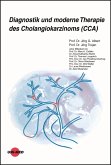Ovarian carcinoma continues to be responsible for more deaths than all other gynecologic malignancies combined, due to a continued inability to achieve detection of early (rather than advanced) stage disease and the lack of effective tumor-specific therapeutics.
Ovarian carcinogenesis, invasion, and metastatic dissemination require a complex cascade of interrelated genetic, molecular, and biochemical events that regulate the neoplastic transition of normal ovarian surface epithelium.
This updated second edition includes exciting new advances in ovarian cancer detection and treatment and provides an analysis of current research into aspects of malignant transformation, growth control, and metastasis. A more detailed understanding of these processes may ultimately translate into the development of novel approaches for the detection and control of ovarian cancer.
Ovarian carcinogenesis, invasion, and metastatic dissemination require a complex cascade of interrelated genetic, molecular, and biochemical events that regulate the neoplastic transition of normal ovarian surface epithelium.
This updated second edition includes exciting new advances in ovarian cancer detection and treatment and provides an analysis of current research into aspects of malignant transformation, growth control, and metastasis. A more detailed understanding of these processes may ultimately translate into the development of novel approaches for the detection and control of ovarian cancer.
From the reviews of the second edition:
"This is a book for basic scientists and clinicians that addresses the pertinent translational and basic science issues concerning ovarian cancer. It is insightful and written at the highest level. ... It is intended for basic scientists and clinicians who have questions surrounding the issues around ovarian cancer. ... This outstanding and readable book covers many of the basic science and translational science issues involved in ovarian cancer." (David G. Mutch, Doody's Review Service, April, 2011)
"This is a book for basic scientists and clinicians that addresses the pertinent translational and basic science issues concerning ovarian cancer. It is insightful and written at the highest level. ... It is intended for basic scientists and clinicians who have questions surrounding the issues around ovarian cancer. ... This outstanding and readable book covers many of the basic science and translational science issues involved in ovarian cancer." (David G. Mutch, Doody's Review Service, April, 2011)









